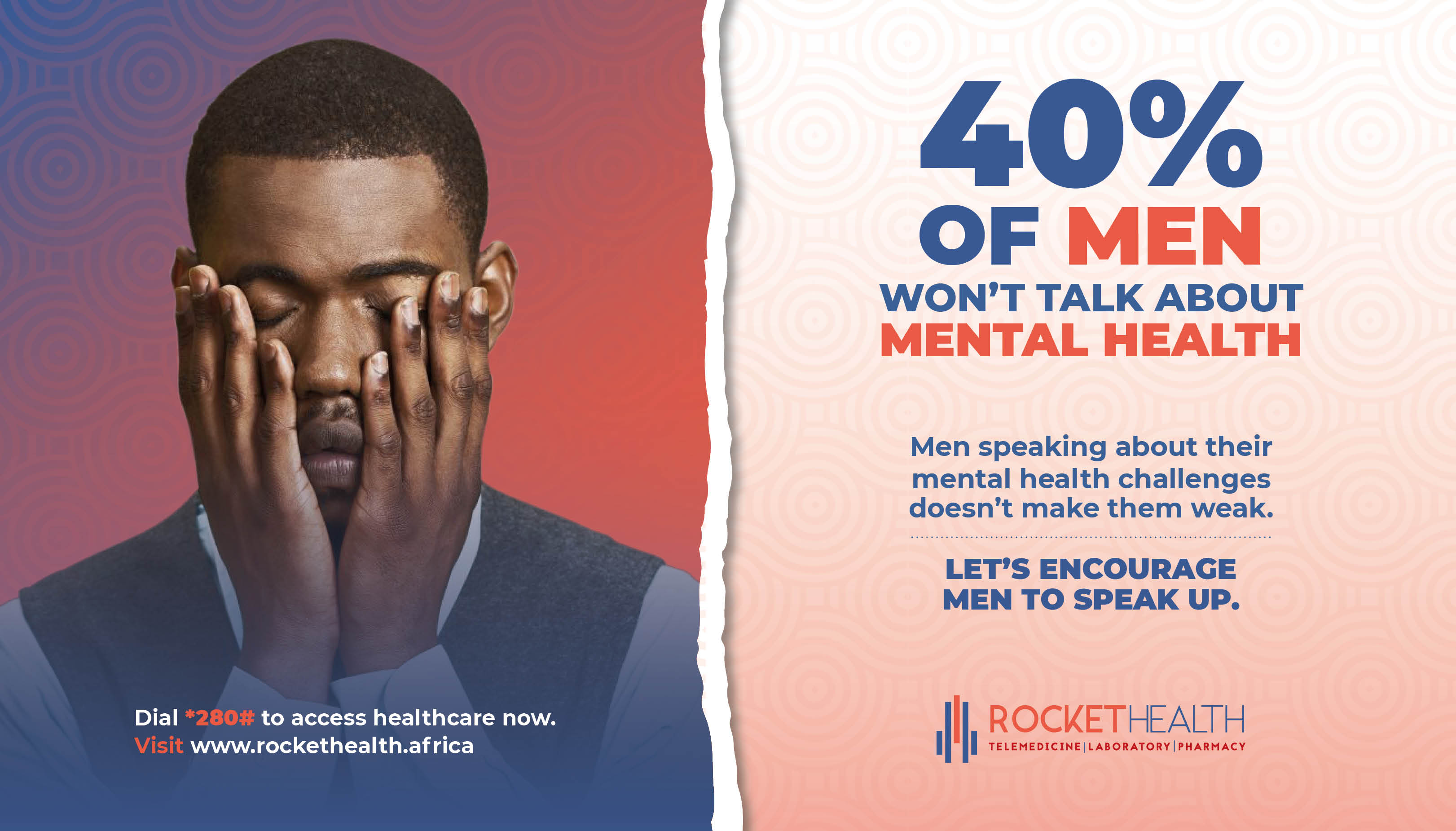The World Health Organization defines mental health as a state of well-being in which an individual realizes their abilities, can cope with the normal stresses of life, can work productively and fruitfully, and be able to contribute to society. Mental health, therefore, affects how we handle stress, relate to others, and make choices.
Some of the common examples of mental health illnesses include clinical depression, anxiety disorder, bipolar disorder, Post-traumatic stress disorder, and many others.
Mental illness symptoms can affect emotions, thoughts, and behaviours. They can vary, depending on the disorder, circumstances, and other factors.

There are two sides of mental health:
Good mental health entails a person feeling comfortable around themselves and others, reasonably secure and adequate and neither underestimates or overestimates their capabilities. Good mental health is not simply the absence of diagnosable mental health problems, but being able to meet the demands of life and not be bowled over by their emotions of fear, anger, love, or guilt.
Poor mental health is when our mental health is not what we would want it to be. With poor mental health, an individual finds it difficult to manage how they think, feel, and act concerning daily stresses.
Signs of mental health problems:
There are several signs and symptoms of mental health challenges but the common ones include;
- Consistent worry and fear without cause
- Inability to concentrate because of various reasons
- Continuous unhappiness without a justified cause
- Insomnia or lack of sleep
When living with mental health problems, having access to the right information is vital to support in improving mental health. Here are some of the ways to improve mental health:
- Talk to someone about how you are feeling and ask for help: Talking can help you to take charge of your mental health and wellbeing. It also puts the problem into perspective, making you feel supported and less isolated.
- Stay active to boost your well-being: Regular exercise can help one concentrate, sleep better and boost self-confidence.
- Eat well to feed the brain: Ensuring you have a balanced, nutritious diet will benefit your physical health as well as improve your mental wellbeing.
- Keep good relationships: Staying in touch with friends, in person, on the phone, or online can help you remain grounded, active, and supported, and in return have a positive effect on your mental health.
- Take time off: Taking a break from work, whether it is taking annual leave or just a five-minute break can make a difference between feeling stressed and coping with stress.
- Learn a new skill: Learning new skills improves your mental health and empowers you to stay positive.
- Do something you love to reduce stress: Taking part in an activity or activities that you enjoy can help to boost self-esteem, ease stress, and improve your mental health
Myths and facts on mental health
Experiencing a mental health problem is hard enough, but living with stigma is as painful as the symptoms. Stigma can come through the myths in our society. According to MentalHealth.gov some mental health myths include:
Myth: Children don’t experience mental health problems.
Fact: Even children can also show early warning signs of mental health challenges. These challenges are often clinically diagnosable and can be a result of the interaction of biological, psychological, and social factors.
Myth: People with mental health problems are violent and unpredictable.
Fact: The vast majority of people with mental health problems are no more likely to be violent than anyone else. Most people with mental illness are not violent and only 3%–5% of violent acts can be attributed to individuals living with a serious mental illness. People with severe mental illnesses are over 10 times more likely to be victims of violent crime than the general population.
Myth: People with mental health needs, even those who are managing their mental illness, cannot tolerate the stress of holding down a job.
Fact: People with mental health problems are just as productive as other employees. Employers who hire people with mental health problems report good attendance and punctuality as well as motivation, good work, and job tenure on par with or greater than other employees.
Myth: There is no hope for people with mental health problems. Once a friend or family member develops mental health problems, he or she will never recover.
Fact: Studies show that people with mental health problems get better and many recover completely. Recovery refers to the process in which people can live, work, learn, and participate fully in their communities. There are more treatments, services, and community support systems than ever before, and they work.
Promoting the social-emotional well-being of children, youths and adults lead to a more positive and productive lifestyle.
At the end of the day, none of us is superhuman. We all get tired or overwhelmed by how we feel or when things go wrong. If you feel overwhelmed and you can’t cope, ask for help from a friend, family, or a mental health specialist. Sharing your mental health challenges does not make you weak. Talking about a problem is often the first step to recovery. Take good care of your mental health.
Written by Dr. Fiona Eyotaru and Esther Kyokutamba


